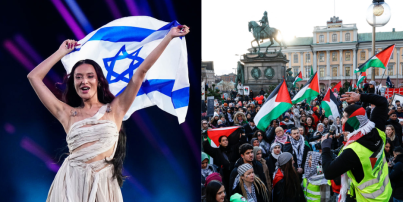Eurovision is a blast rarely acknowledged in the United States, but is the highest viewed television program in the world on a yearly basis, generally placing ahead of the Super Bowl and falling behind only the World Cup final game every fourth year. This year's show generated more headlines, in Europe and otherwise, thanks to the victorious performance from Austria and transvestite headliner Conchita Wurst.
Wurst became recognizable for her big voice, but her beard became even more symbolic. Each nation's representative called in their votes for point allotment, and Austria's attractive panel member wore a faux-beard in solidarity for the nation's competitor. More conservative nations such as Russia and Belarus loudly protested Wurst's appearance leading up to the event, and the latter even moved to have her performance blocked from airways in the country. The rest of the continent rose in support of Wurst however, and as the 12-point first-place voted poured in for her song "Rise Like A Phoenix." The performer was shown with tears welling up as the points added up.
Russia's performance was a quality one but regional politics made the nation the stomping ground for the rest of the field. Both the nation's old-world approach to sexual politics and its aggressive invasion of Ukraine have given it a black eye, and any points awarded to its performance were met with boos from the audience at the arena in Copenhagen (and at bars in New York City). Russia gave the most points to the former Soviet bloc states Armenia, Azerbaijan and Belarus (in its defense, Azerbaijan mounted an impressive performance).
Wurst avoided gender politics when accepting on behalf of Austria however, dedicating the victory to "everyone who believes in the future of peace and freedom."
Next year's Eurovision competition will be held in Austria, as the winning nation earns hosting rights for the next year. Second place went to The Common Linnets from the Netherlands and third went to Sanna Nielsen of Sweden.
© 2026 MusicTimes.com All rights reserved. Do not reproduce without permission.







